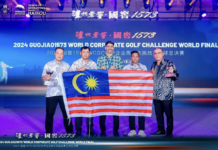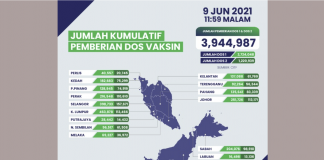Beijing, Feb 24: China has rejected accusations of “genocide”, “forced labor” and “religious suppression” in the Xinjiang Uygur autonomous region, saying the door to Xinjiang is always open and the region would welcome a visit by the United Nations High Commissioner for Human Rights.
State Councilor and Foreign Minister Wang Yi made the remark on Monday when addressing the high-level meeting of the 46th session of UN Human Rights Council via video link.
The inflammatory accusations are fabricated out of ignorance and prejudice and are simply malicious and politically driven hype and couldn’t be further from the truth, Wang said.
He added that people from many countries who have visited Xinjiang have learned the facts and the truth on the ground.
Wang reiterated that the essence of Xinjiang-related issues is countering violent terrorism and separatism.
Thanks to the efforts of local people of all ethnic groups, there has been no case of violent terrorism for more than four years in Xinjiang, he said, adding that the region enjoys social stability and has sound development momentum. The Xinjiang people are living safe and happy lives, he said.
“Based on law, Xinjiang guarantees people’s freedom of religious belief,” Wang said at the three-day meeting, which concludes on Wednesday in Geneva.
The Uygur population and workers of all ethnic groups in Xinjiang can choose professions of their own free will and have the benefit of labor rights, he said.
China will continue to promote international dialogue and cooperation on human rights, Wang said, yet the country opposes using double standards to make slanderous attacks on other countries or using human rights as an excuse to interfere in other countries’ affairs.
“Human rights are not a monopoly of a small number of countries, and even less should they be used as a tool to pressure other countries and meddle in their internal affairs,” Wang said.
Global human rights governance should be advanced through consultation among all countries, and the benefits of human rights progress should be shared by people of all countries, Wang said.
Wang called for upholding both universality and specifics of human rights. The UN Charter and the Universal Declaration of Human Rights have set out lofty ideals and basic principles for advancing human rights, which should be observed and delivered by all countries, he said. At the same time, they should promote and protect human rights in light of their realities and the needs of their people, he added.
Wang also stressed the people-centered human rights philosophy, saying that increasing people’s sense of gain, happiness and security is the fundamental pursuit of human rights as well as the ultimate goal of national governance.
On Tuesday, Foreign Ministry spokesman Wang Wenbin slammed Canada’s House of Commons for voting to declare China’s treatment of the Uygur minority population as “genocidal” and for asking Canadian leaders to call on the International Olympic Committee to move the 2022 Winter Olympics from Beijing.
Wang Wenbin condemned and opposed the motion at a daily news briefing and said that China has lodged stern representations with Canada.
The motion ignored facts and common sense, and violated inter-national laws and basic norms governing international relations, the spokesman said.
Some Canadian politicians blatantly politicize sports, and such a move runs counter to the Olympic Charter and jeopardizes the Olympics and the interests of athletes around the world, he said.
Some individuals in Canada have never visited Xinjiang or any other part of China, but are politically manipulating the Xinjiang issue under the guise of human rights and spreading disinformation and lies, which trample on the values they claim to uphold, he said.
The Foreign Ministry spokesman stressed that Xinjiang affairs are China’s internal affairs, which Canada is not entitled to and has no right to interfere in. He added that the country will make resolute responses to any actions that undermine its interests.
















